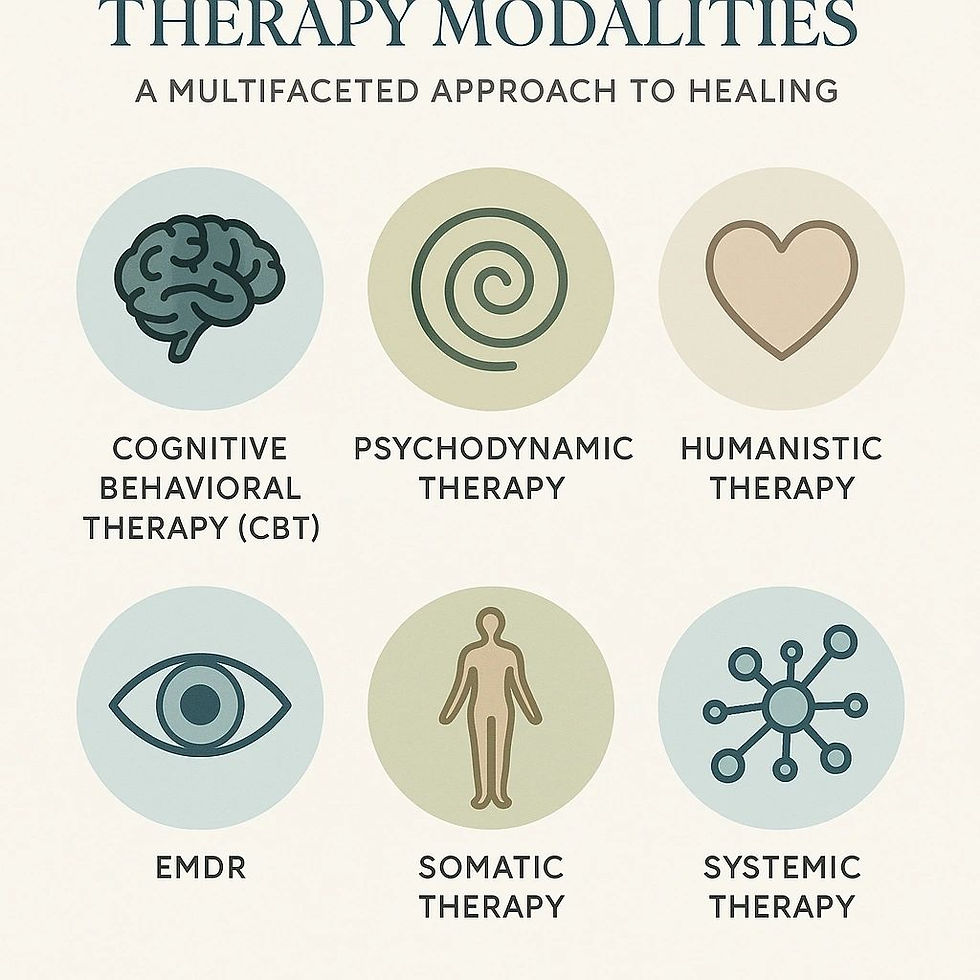Understanding Emotional Regulation: A Key to Mental Well-being
- Allison McCue-Napoli
- Feb 16
- 2 min read

Emotional regulation is the ability to manage and respond to an emotional experience in a socially acceptable and healthy manner.
Emotional regulation is essential to how we handle stress, interact with others, and make decisions. Mastering emotional regulation can lead to better mental well-being, improved relationships, and greater resilience in facing challenges.
The Importance of Emotional Regulation
Emotions are a natural part of life but can sometimes be overwhelming. Without proper regulation, emotions such as anger, anxiety, or sadness can lead to impulsive decisions, strained relationships, and mental distress. Emotional regulation helps individuals navigate difficult situations, maintain composure, and respond thoughtfully rather than reactively.
Strategies for Effective Emotional Regulation
Mindfulness and Awareness – Understanding and acknowledging your emotions is the first step to regulation. Mindfulness practices, such as meditation and deep breathing, can help increase self-awareness and allow you to manage your reactions more effectively.
Cognitive Reframing – Changing the way you perceive a situation can significantly alter your emotional response. Instead of viewing challenges as insurmountable problems, try to see them as opportunities for growth.
Healthy Expression – Suppressing emotions can lead to long-term stress. Finding constructive ways to express emotions, such as journaling, talking to a trusted friend, or engaging in creative activities, can be beneficial.
Physical Activity – Regular exercise releases endorphins, which help improve mood and reduce stress. Activities like yoga, running, or dancing can adequately manage emotions.
Practicing Self-Compassion – Being kind to yourself during emotionally challenging moments is crucial. Recognize that it’s okay to feel strong emotions and remind yourself that everyone experiences ups and downs.
The Role of Emotional Regulation in Relationships
Effective emotional regulation plays a significant role in maintaining healthy relationships. It allows individuals to communicate better, resolve conflicts constructively, and avoid unnecessary arguments. When both partners practice emotional regulation, it fosters a more supportive and understanding dynamic.
Emotional Regulation and Mental Health
Poor emotional regulation can contribute to mental health challenges such as anxiety, depression, and chronic stress. Developing strong regulation skills can enhance emotional resilience, improve self-esteem, and create a sense of stability. Seeking professional support, such as therapy or counseling, can also be beneficial in improving emotional regulation techniques.
Emotional regulation is not about suppressing emotions but rather managing them to promote overall well-being. By practicing mindfulness, cognitive reframing, healthy expression, and self-compassion, individuals can improve their ability to navigate life’s emotional ups and downs. Strengthening emotional regulation skills can lead to greater personal growth, healthier relationships, and an improved quality of life.








Comments